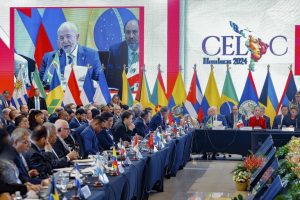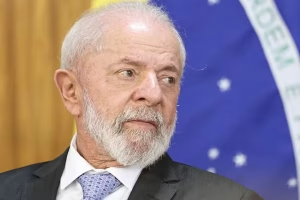Brazil and the China-US arm wrestling
Pedro Luiz Rodrigues
With the new coronavirus pandemic, the highly interconnected world economy is facing its third crisis in just over a decade. The current crisis represents, however, a different and serious type of threat: the erosion of global trade and investment links.
The scarcity of medical devices and materials recently experienced by some countries has sensitized governments, companies and consumers to the need to produce essential items within their own borders.
If this trend persists, it could lead to the disruption of certain globalized production chains and the abandonment of just-in-time logistics in sectors that have shown not to work in an emergency.
Furthermore, everything suggests that tensions between the United States and China will worsen, widening the gap of misunderstanding between the two countries. What started as a trade dispute two years ago is dangerously evolving into a bilateral strategic and geopolitical arm wrestling.
Robert E. Lighthizer, the US trade representative, has just written an article in which he clearly states his government’s position: outsourcing creates risks that often outweigh incremental efficiencies. The long supply lines flow according to the vagaries of local politics, labor unrest and corruption, he said.
He particularly attacked China, where, in his opinion, “there have been government efforts to steal intellectual property for the benefit of domestic companies that become the main competitors of the victims of the theft”.
We must be wary of attacks against China like this one from the USTR, because they are uncritically absorbed and amplified by a public opinion that, as Walter Lippman taught us, is much more guided by emotion than by logic. There may be an economic basis for some of the criticism from the United States, but there are certainly many hidden political impulses.
Interviewed on May 11 by the Beijing Global Times, Stanley Roach – economist at Yale University and former president of Morgan Stanley Asia – expressed his concern about the support that American public opinion has given to the orchestrated White House campaign against China .
Roach mentioned “a leak in the Republican Party’s political strategy that was written by some consultants for the presidential campaign,” which he read very carefully: “His basic premise on the new coronavirus policy – Don’t defend Trump, but attack China. The Republican strategy in the next presidential election campaign is very much focused on attacking China ”.
The Nobel Prize economist Paul Krugman gets right to the point: President Trump is not finding an easy way out of the US-created health mess: his lack of patience over the hard work of containing a pandemic may be precisely what turns a serious but temporary downfall , in a total depression.
The spread of anti-China rhetoric can also fuel more extreme political reactions in third countries, as well as promoting less global political collaboration in areas such as the containment of COVID-19.
Countries like Brazil should act with caution. We have concrete interests in maintaining a good relationship with China, not only its main trading partner, but also a partner with whom we obtained a trade surplus large enough to cover the services account deficit in our current account of the balance of payments.
Businesses, American or not, that have invested heavily in China will fear the obstacles that can be unilaterally set by American authorities, which are harmful to global integration and interconnectivity.
Pedro L. Rodrigues, a retired Brazilian diplomat and journalist.







Comentar